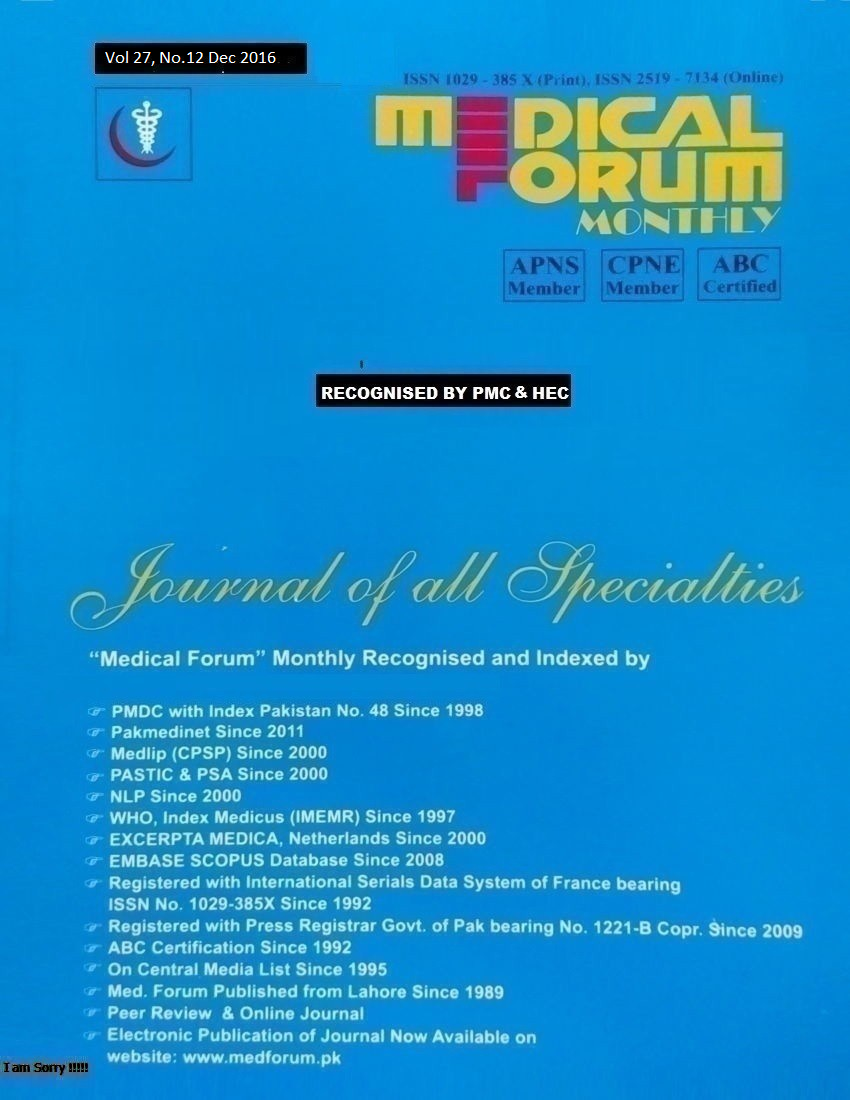
3. Indigenous Practices of Mothers in Acute Diarrhoea in Children Under Five Years of Age in Peri-Urban Areas of Southern Punjab
Seemal Vehra1, Muhammad Ibrar Iqbal2 and Ejaz Mahmood Ahmad Qureshi2
ABSTRACT
Objective: To find out mothers’ indigenous practices for controlling diarrhoea in children.
Study Design: Observational / descriptive / cross-sectional study
Place and duration of study: This study was conducted at the Department of Public Health, IPH, Lahore and Department of Botany, GPGCW, Lahore for three months.
Materials and Methods: 200 children suffering from diarrhoea attending a private clinic in Southern Punjab were included in this study. Data was collected through questionnaire and analyzed using SPSS 19.0. Chi-square test and correlation were applied to find out the level of significance and correlation between different variables.
Results: Majority (59%) of the children suffering from diarrhoea were < 1 year old. 97% of mothers of children with diarrhoea were housewives. Information collected about mother’s educational status revealed that 50% were illiterate. 3% had attended school only up to grade 1 or 2 or educated up to primary level. Total family monthly income of majority (61.5%) was > Rs 10,000. A vast majority of respondents i.e. 75.5% lived in an extended family system and 47.5% children belonged to families having 6-10 members. About three fourths of children (74.5%) were bottle fed whereas 32.5% consumed cow milk as breast milk substitute. Regarding the diet given to children during diarrhoeal condition, 48% of mothers fed their children with bananas, 41.4% khichri, 54.0% ORS, 30% yogurt, 23.5% rice water and 12.5% saunf (fennel).
Conclusion: Breast feeding had a significant negative correlation (p = 0.001) with the number of stools passed per day while bottle feeding and other breast milk substitutes had insignificant negative correlation. Likewise, insignificant negative correlation was found between the use of banana, rice water, kichri, pomegranate (anar) juice, honey, lemon water, qahwa and yogurt with the number of stools children passed per day. Information about benefits of breast feeding and frequent hand washi g as well as rota virus vaccination to prevent diarrhoea should be provided to families for controlling diarrhoea at commu ty level. Key Words: Acute diarrhoea, indigenous practices, m thers, children
Citation of article: Vehra S, Iqbal MI, Qu eshi EMA, Indigenous Practices of Mothers in Acute Diarrhoea in Children Under Five Years of Age in Pe i-U ban Areas of Southern Punjab. Med Forum 2016;27(12):9-13.
